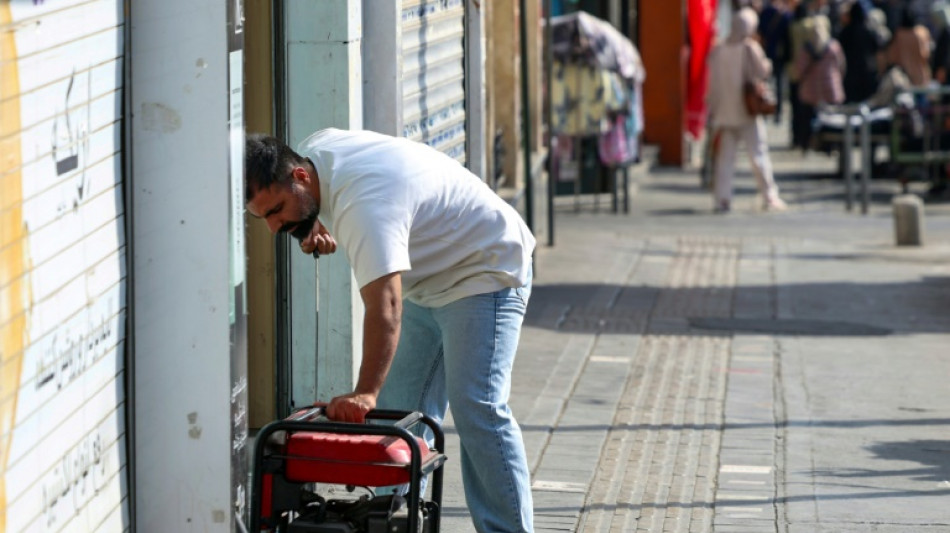

Iran's small businesses hit by rolling blackouts
Pizzeria owner Saeed is unable to take or serve orders at his restaurant in the Iranian capital, his business stalled by rolling power outages that have compounded the country's many economic woes.
"Outages often hit right in the middle of lunch service, the worst time for restaurant owners," the 48-year-old entrepreneur told AFP from his pizzeria in an upscale neighbourhood of northern Tehran, requesting to be identified only by his first name.
Prolonged power cuts, which also disrupt water and internet access, have become routine, with officials blaming fuel shortages, drought, decrepit infrastructure and soaring demand in the sweltering heat.
The burden on small businesses, already struggling to make ends meet, is likely to worsen with European powers moving to reimpose sanctions if an agreement is not reached on Iran's nuclear programme in the coming weeks.
The Iranian currency is already in free fall, exacerbating chronic hyperinflation.
Tehran has seen one of its hottest summers on record this year, with temperatures around 40C prompting the government to repeatedly shut banks and public offices to conserve energy and water.
Last Friday, state television reported electricity consumption reached 73,500 megawatts, approaching the all-time record of 79,000 megawatts recorded in 2024.
Without sufficient fuel to operate the power plants, authorities are forced to ration electricity to prevent overloading the ageing grid, instituting daily two-hour cuts across the country.
No electricity means no internet, and so no online orders for Saeed -- a significant portion of his business.
"Orders have fallen drastically," said Saeed, who regularly misses online requests placed during outages.
To stay afloat, he says he has been forced to lay off staff and cut back further on electricity use.
- 'Unavoidable' -
Last month, Iran's President Masoud Pezeshkian acknowledged the strains the energy crisis was causing, pledging reforms to attract investment.
He however conceded that, for now, "cutting off electricity was unavoidable."
Across Tehran, butchers, bakers, pastry shops, and even ice cream vendors suffer heavy losses in the meantime.
In the city centre, a pastry chef showed AFP rows of refrigerators, empty or at most half-filled after a power outage stalled his process.
"Dry pastries can survive in the fridge for maybe two hours," he told AFP. "But the soft ones, especially chocolate ones, collapse."
"They go mushy, and nobody buys them," the grey-haired patissier complained, saying the worst part of the outages is their unpredictability.
Authorities publish outage schedules by area, but the cuts often still occur at erratic times.
"Sometimes it happens two hours before schedule, right when we're in the middle of production," he said, at which point he can only watch his creations go bad.
- Wilted icing -
Videos circulating widely on social media in recent weeks have shown bakery workers throwing out trays of spoiled goods, including dough and decorative cakes, colourful icing wilting in the heat.
Butcher Hossein Hajabassi has been forced to do the same, his business quickly shrinking as meat prices soar and purchasing power plummets.
"Chicken breasts and fillets, but also lamb liver, which are already very expensive, spoil very quickly," said the butcher in his sixties.
"I sometimes take the meat home to avoid wasting it."
A.Olsson--RTC


